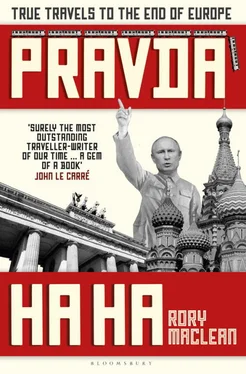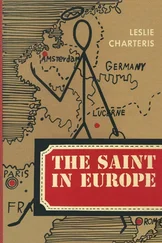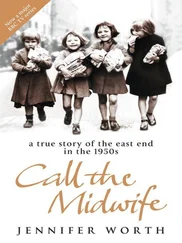Rory MacLean - Pravda Ha Ha - True Travels to the End of Europe
Здесь есть возможность читать онлайн «Rory MacLean - Pravda Ha Ha - True Travels to the End of Europe» весь текст электронной книги совершенно бесплатно (целиком полную версию без сокращений). В некоторых случаях можно слушать аудио, скачать через торрент в формате fb2 и присутствует краткое содержание. Город: London, Год выпуска: 2019, ISBN: 2019, Издательство: Bloomsbury Publishing, Жанр: Путешествия и география, Публицистика, на английском языке. Описание произведения, (предисловие) а так же отзывы посетителей доступны на портале библиотеки ЛибКат.
- Название:Pravda Ha Ha: True Travels to the End of Europe
- Автор:
- Издательство:Bloomsbury Publishing
- Жанр:
- Год:2019
- Город:London
- ISBN:978-1-4088-9652-5
- Рейтинг книги:3 / 5. Голосов: 1
-
Избранное:Добавить в избранное
- Отзывы:
-
Ваша оценка:
- 60
- 1
- 2
- 3
- 4
- 5
Pravda Ha Ha: True Travels to the End of Europe: краткое содержание, описание и аннотация
Предлагаем к чтению аннотацию, описание, краткое содержание или предисловие (зависит от того, что написал сам автор книги «Pravda Ha Ha: True Travels to the End of Europe»). Если вы не нашли необходимую информацию о книге — напишите в комментариях, мы постараемся отыскать её.
Pravda Ha Ha: True Travels to the End of Europe — читать онлайн бесплатно полную книгу (весь текст) целиком
Ниже представлен текст книги, разбитый по страницам. Система сохранения места последней прочитанной страницы, позволяет с удобством читать онлайн бесплатно книгу «Pravda Ha Ha: True Travels to the End of Europe», без необходимости каждый раз заново искать на чём Вы остановились. Поставьте закладку, и сможете в любой момент перейти на страницу, на которой закончили чтение.
Интервал:
Закладка:
We can stay, Yusra and her sister had realised on their arrival in Berlin. No more running. No more fear. No more war.
On their first Berlin morning, beside the shower block, trestle tables had been piled with gifted soap, shampoo and towels. In the red-brick camp building whole rooms were filled with donated clothes. Yusra chose white T-shirts and a jumper as well as black shoes and a pink scarf.
Wasserfreunde Spandau 04, a swimming club based at the nearby Olympic Park, took in the sisters and let them resume their training. The war and exhausting journey had sapped their strength, and a shoulder injury forced Sara to stop, but Yusra continued, determined not to give up on her dream.
When the International Olympic Committee decided to form a refugee team for the Rio Games, Yusra was asked to join it. But she hesitated. She didn’t want charity. She wanted to compete in the Games because of her ability, not by virtue of being a refugee. Yet at the same time she realised that she could speak for those who did not have a voice. She saw a way to support fellow refugees by her example.
‘I really wanted to feel their pain like I felt my pain. I know what pain is in this situation: to lose your country, your friends, to start a new life.’ No one chooses to be a refugee, she repeated. ‘Our choice is to die at home or risk death trying to escape.’
Yusra flew to Rio, joined the Parade of Nations, swam the 100 metres freestyle and the 100 metres butterfly. She didn’t win a medal but her main focus was on telling her story. At press conferences, in her later address to the United Nations General Assembly, as the youngest UNHCR goodwill ambassador, she relayed a message of hope, determination and courage, aspiring to change perceptions, declaring for all to hear that those who flee their countries are capable of achieving great things.
When we met in Berlin she was already training for the next Olympic Games.
‘Migrants can bring joy to their new home, as well as ideas and good food,’ she told me with a disarming smile: big black eyes ringed with kohl, shoulder-length hair, gap tooth. ‘Every individual has something special to give but they need to have both time and the opportunity to give it.’
As we spoke I wondered if she felt herself to be Syrian? Or Middle Eastern? European? German? Muslim?
‘I am a bit of everything,’ she replied with feeling. ‘I can understand different cultures because of my experiences. I always try to empathise with another person.’ She paused and added, ‘I put myself in their shoes.’
Xenophobes only stand in their own shoes, of course. In Budapest and Baltimore, from St Petersburg to St Albans, their leaders empower themselves by exploiting doubts and fears. They place political ambition above humanity, blinding themselves – and their supporters – to compassion and generosity. As I’d seen a battle of ideas was unfolding in Europe, once again sweeping up the innocent, including now Yusra’s sister Sara. She had also been determined to help refugees. She’d returned to Lesbos to volunteer for a migrant aid group. But in a nativist clampdown on civil society, she was arrested and imprisoned on trumped-up charges of people-smuggling.
In 1989, the year of the fall of the Wall, eleven countries had border walls or fences. Thirty years on, there are more than seventy around the world.
‘What have I learned on the journey?’ said Yusra Mardini, repeating my question as we parted in Berlin. ‘Perspective,’ she answered. ‘Perspective.’
33
Wir sind das Volk
Thirty years have left little mark on parts of East Germany. Only a sheen of modernity seemed to have been brushed across much of the countryside. Beyond the train’s window, communist-era breezeblock pigsties lined a waterlogged swede field. A farmer cleaned out her chicken shed, its tarpaper roof weighed down with rocks. Kitchen gardens awaited spring planting, the newly turned soil black against the sprouting green. Mossy mounds of salvaged bricks were stacked at the edges of fields, to be reused on a day yet to come.
After unification, some two million people opted to leave the eastern Länder of empty factories and closed collective farms, [20] In 1992 former East Germany accounted for only 3.4 per cent of Germany’s gross domestic product. Some 2.5 million state jobs were lost with the ending of the centralised economy and collapse of the old industrial system. The world order that so many had once known ceased to exist. Today after huge inward investment, its contribution to national GDP has risen to about 15 per cent but none of the thirty largest companies listed on the German stock market are yet based in the east.
the best and the brightest choosing to build their lives in Berlin and the West. Many of those left behind felt both abandoned by established politicians and resentful of migrants who, they believed, were competitors for jobs. Most succumbed to Ostalgie , forgetting the trials and troubles of the old East. ‘Many now remember it as a gentle country where there was full employment,’ reported the Berliner Kurier newspaper. Some chose to idealise another disgraced doctrine, and channel their insecurities into hate.
Today Saxony, a state once more powerful than Brandenburg and Prussia, imagines itself as a kind of German Texas: conservative, authoritarian and bold. In Chemnitz, its third largest city, one of the first grand villas boasted a four-sided inscription: Ich hab’s gewagt . I dared to do it.
I changed trains there, catching a double-decker Regional-Express to Leinefelde. The town’s small Eichsfeldtag festival was no Woodstock or Rock am Ring, corralled onto a single sports field across from the KiK discount store. Only 1,000 sympathisers came on the day of my visit, the men sporting tattoos and T-shirts: Support your Race, Stop the Asylum Flood, Feuer und Flamme für eure Demokratie . The women wore baseball caps and shades, pushed prams, sipped beers. Their children darted between them and the bouncy castles, queuing at sausage stalls and having kaleidoscopic butterflies painted onto their smooth, white faces.
The family-friendly festival was hosted by the NPD, the ultranationalist Nationaldemokratische Partei Deutschlands that once preferred biker rallies and hard rock concerts. In front of the stage there seemed to be as many policemen and journalists as participants, especially when ‘ ein hohes Tier ’ – a party bigwig – began to work the audience, raving about fire and blood, trying to instil in them a sense of fear and power. ‘Either the German people expel the Muslims or the Muslims will enslave us,’ he cried. ‘We must fight for our country, peacefully of course.’
Other far-right factions have gone further to rebrand themselves. Generation Identity – a part-hippie, part-hipster, anti-Islam group – hosted its Europa Nostra summer fete in Dresden, as well as a traditional Christmas market in Halle (complete with flaxen-haired angels, ginger-scented mulled wine and choristers singing of their dream of a white Christmas). With even less subtlety, its activists stormed a migrant integration class at Klagenfurt University, sprayed fake blood on actors in a Vienna theatre (the performance was Nobel Prize-winning author Elfriede Jelinek’s reworking of Aeschylus’s refugee tragedy The Suppliants ) and hung banners on both the Brandenburg Gate (‘Secure borders – Secure future’) and Westminster Bridge (‘Defend London – Stop Islamisation’).
In its most elaborate media stunt to date, Generation Identity chartered an ocean-going ship to disrupt humanitarian rescue missions in the Mediterranean.
‘Every week, every day, every hour, ships packed with illegal immigrants are flooding into European waters,’ asserted its Defend Europe website, conjuring up a sense of existential crisis. ‘This massive immigration is changing the face of our continent. We are losing our safety and our way of life and there is a danger we Europeans will become a minority in our own European homelands. Our future is under attack.’
Читать дальшеИнтервал:
Закладка:
Похожие книги на «Pravda Ha Ha: True Travels to the End of Europe»
Представляем Вашему вниманию похожие книги на «Pravda Ha Ha: True Travels to the End of Europe» списком для выбора. Мы отобрали схожую по названию и смыслу литературу в надежде предоставить читателям больше вариантов отыскать новые, интересные, ещё непрочитанные произведения.
Обсуждение, отзывы о книге «Pravda Ha Ha: True Travels to the End of Europe» и просто собственные мнения читателей. Оставьте ваши комментарии, напишите, что Вы думаете о произведении, его смысле или главных героях. Укажите что конкретно понравилось, а что нет, и почему Вы так считаете.

![Эдвард Докс - Pravda ['Self Help' in the UK]](/books/33503/edvard-doks-pravda-self-help-in-the-uk-thumb.webp)










